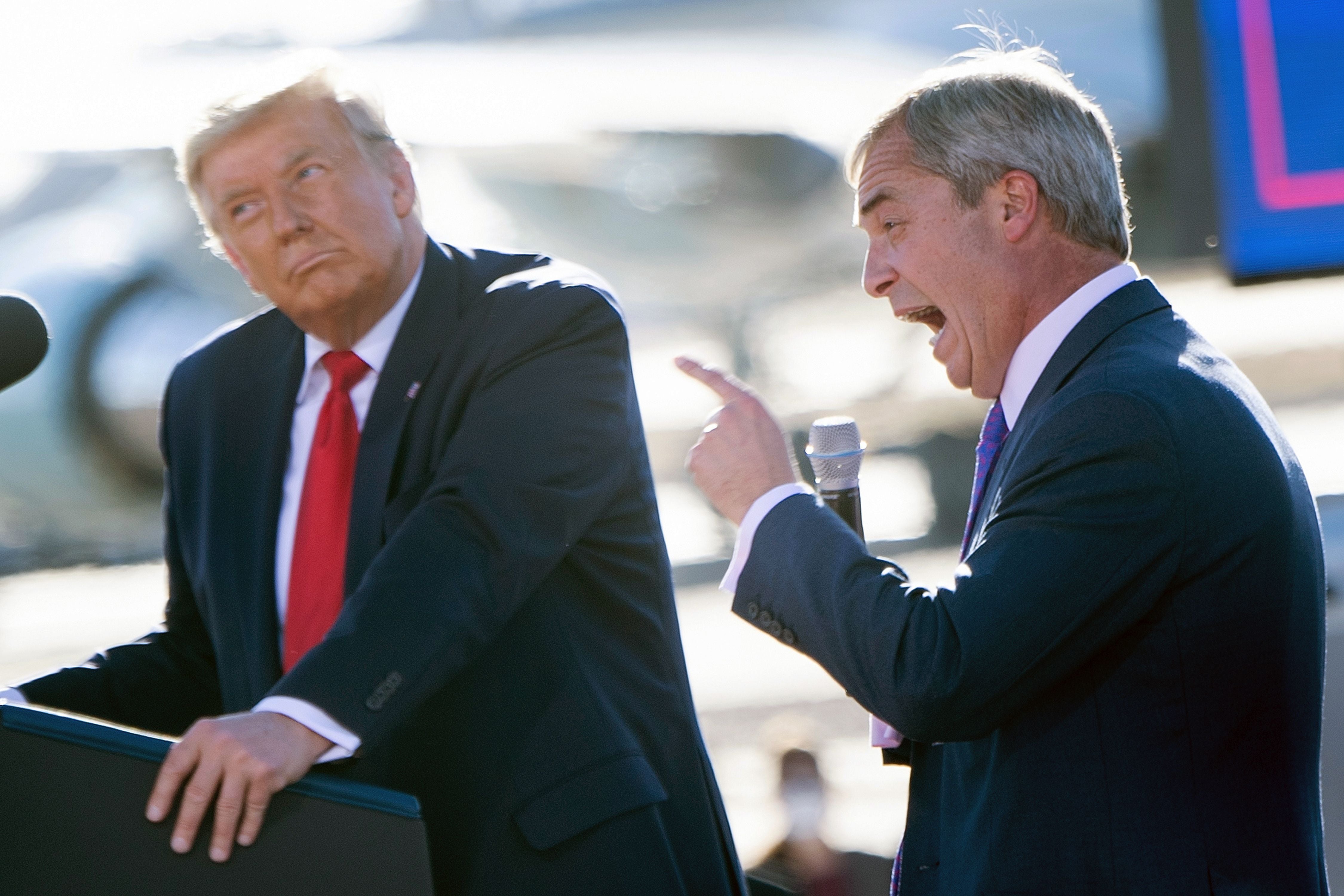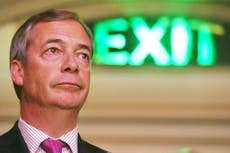Nigel Farage’s natural supporters won’t buy his lockdown sceptic party
New research suggests that the rebranded Brexit Party is going to have to rebrand all over again, writes John Rentoul


Nigel Farage’s renamed party has a problem, in that it was formed to fight the lockdown, which is likely to be lifting, if not lifted, by the time of its first electoral test, the elections on 6 May. I wrote that on Tuesday, and now a new study suggests the problem for Reform UK is even more serious.
Research by my colleagues at King’s College London suggests that Leave voters tend to support the lockdown as much as Remainers do. This seems surprising, because most leading lockdown sceptics are Brexiteers. Among public figures, the Venn diagram of Euroscepticism and lockdown scepticism seems to consist mostly of overlap.
Yet the research suggests that among the wider population, the values that divide Leavers and Remainers are not those that separate the supporters and opponents of coronavirus restrictions. James Dennison and Bobby Duffy, the study’s authors, report: “Those valuing universalism were the strongest supporters of Remain, and those valuing security and tradition were the strongest backers of Leave. But these two groups now find themselves somewhat united in support of lockdowns.”
Not only is lockdown scepticism a minority view, then, and likely to be overtaken by events by 6 May, but it would seem that it doesn’t fit well with support for Leave, which was at one point at least, famously, a majority view.
This is surprising, because opposition to coronavirus restrictions seems so obviously to align with the existing ideological views. Farage and Richard Tice, the leading lights of the Brexit Party, are now the leading lights of Reform UK. Steve Baker and Sir Graham Brady, who argued for a clean-break Brexit, have led the campaign against illiberal lockdowns. In the US, the supporters of Farage’s ally Donald Trump, an honorary Brexiteer, have been keener to keep society open and less keen to wear masks.
Yet this lockdown scepticism doesn’t seem to be shared by these leaders’ natural supporters. You would have thought that there would be at least a potential reservoir of like-minded voters who could be mobilised by the rebranded Brexit Party, but this research suggests that Farage, whose instinct for popular opinion has served him well in the past, has got this one wrong.
Which may be why Reform UK has turned a rather sharp corner since it was formally launched just five weeks ago. It has switched attention from the lockdown to what happens next: advocating economic growth by cutting taxes, red tape and government waste, in order to pour money into a reformed health service.
It has gone back to one of the original slogans of the Brexit Party, which Tice, chair of the party now known as Reform UK, explained in an interview last year: “The original slogan was ‘Fighting Back’. When we polled it, it did really badly. That is a real lesson, actually. People, voters, even when they are frustrated and angry, they want an uplifting, positive message. They don’t want a message of basically war. So we came up with ‘Change Politics for Good’ incredibly quickly, and it polled off the chart.”
When Farage first announced the change in the party’s name, to take effect when Britain left the EU in January last year (the actual change was delayed in a wrangle over rights to the name), he said it would campaign to change the voting system, the House of Lords and the BBC. There is always a ready market for that kind of promise to “change politics for good”, and Reform UK could still have a future as a mirror image of the Liberal Democrats, capitalising on the anti-politics mood of the country, as Boris Johnson and Keir Starmer are increasingly seen as two sides of the establishment.
Pile on top of that an appeal to the self-employed and small businesses who have been hard hit by the coronavirus recession, and the equivalent of £350m a week for the NHS on the side of a bus, and this could be an effective protest party.
If Reform UK can reverse out of the dead end of lockdown scepticism quickly enough, it could yet be a disruptive force in the 6 May elections.



Join our commenting forum
Join thought-provoking conversations, follow other Independent readers and see their replies
0Comments